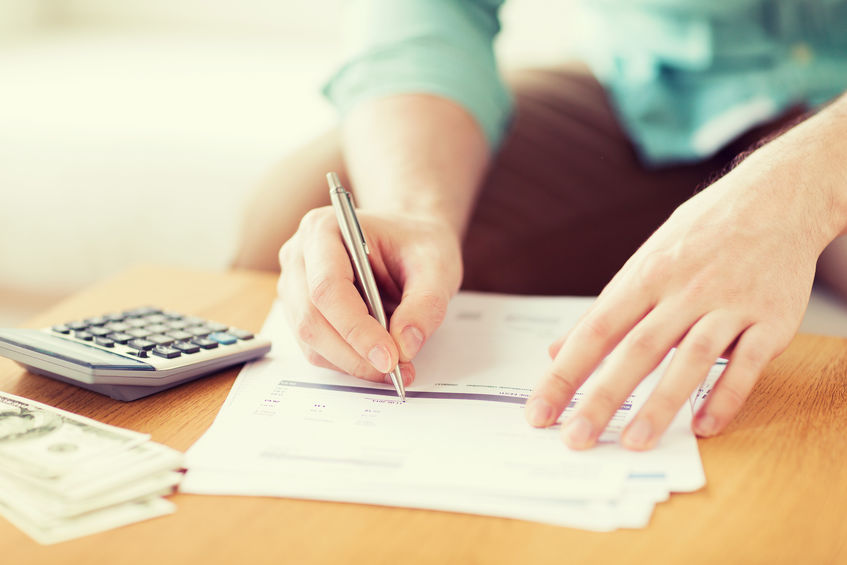How Do Expats Get Bank Accounts part 1 – that will be the topic of today’s article.
Before introducing this article, if you are interested in our core services which are expat financial, insurance and mortgages, you can contact me here.
The best time to consider your financial situation is when you are moving to a new country.
Introduction
It is important for expats to open a bank account in the country that they are living in. There are many benefits of having a bank account. A bank account can be defined as an arrangement with a financial institution, such as a brokerage firm or an insurance company, to pay bills and manage finances.

The most common bank accounts include saving accounts, checking accounts, and online bank accounts. Accounts offered by a specific financial institution in a country are called domestic accounts.
An expat can enjoy the benefits of having a domestic account. It is very easy for them to get a domestic account in their new country. All they have to do is open an account with one of the banks that is located in the country. However, there are some steps that they have to take first because not all countries allow an expat to open a domestic account.
In fact, many countries like Switzerland and Germany will not allow expats to open a bank account within their borders. The citizens of those countries prefer to deal with domestic account holders as it is their right to do so under the laws of those countries.
However, there are other countries like Singapore and Thailand that allow expats to have a bank account. Today, we have come up with several ways expats can get a bank account. Aside from this fact, we will walk you through the requirements of opening a bank account in different countries as well as give you some tips on how to apply for one.
Requirements to Open a Foreign Bank Account

Opening a bank account in a foreign country can be an arduous process. There are many requirements to meet before you can open a bank account, such as residency status and proof of income. To help you on your way, here is a list of seven requirements needed to open a foreign bank account.
1) Proof of Residency
A foreign bank account cannot be opened unless the person opening it has a place to call home. In order for this residency requirement to be satisfied, you must carry with you sufficient proof of where you reside. This can come in various forms, such as a passport or driver’s license, which displays your address on it, or a form of identification from the state or province that you reside in.
2) Identification
In order to open a bank account, you and your foreign bank must be able to identify yourself. In most cases, the financial institution will require a form of government-issued identification to be shown to them along with proof of residency. The only exception to this rule is if you are opening the account in the name of a company or trust where yourself or another individual is not listed on it.
3) Proof of Income
In order to be able to provide an income for your foreign bank account, you must have legal means of doing so. This can come in many forms, whether via a job, a retired pension, or even your own business. A bank cannot open an account for you if you do not have a means of providing them with a consistent income.

4) Minimum Deposit
In order to meet this requirement, the financial institution will require some form of deposit from you before opening an account. The rate at which this amount is required can vary from bank to bank and country to country. However, it is generally a relatively low number, such as $1 or $100. This deposit provides security for the financial institution if you ever close your account without warning them first.
5) Account Type
Each financial institution has its own set of rules that allow you to open a savings account, checking account, or even both. To help aid in your search for the perfect bank, each institution should provide you with its list of available accounts before opening one up for yourself. This can be found either through their online website or by contacting them directly.
6) Criminal Background Check
Each financial institution will conduct its background check on you before opening an account with you. They perform these checks to prevent any criminal elements from gaining access to the money within each bank’s care. If you are found to pose a threat in any way, you will be turned down for an account or even reported to the authorities.
7) Other Requirements
Along with the previous six requirements, each financial institution will have its own additional rules, which must be met before they allow you to open an account. These can include everything from how long you must be at your residence before they open an account to the types of documentation that you must supply them with.
Why Expats Need To Open a Bank Account

Moving abroad means making a lot of new decisions! One of the most important things is what bank to use when settling in your new country. There are thousands of banks out there with different offers, and every expat will want the best deal for them in their location. We’ve compiled a list of 7 reasons why an expat should open a bank account when they move abroad.
Avoid Foreign Transaction Fees
Many expats will transfer money from their home bank to the new one when settling in. This can cause foreign transaction fees that some banks charge for transferring between different currencies.
Not all banks charge this fee, so it’s important to find out what your bank does before you decide to transfer. Not only do you have to pay the fee, but it will usually take longer for your money to arrive, which might not be a problem now, but could become one of the currency drops before your money arrives.
Make Use of Coupons and Cashback Deals
Many banks offer discounts or even cash back for using their services. For example, the HSBC Premier Account comes with a £100 cashback offer for expats who transfer a certain amount of money each month. Banks will advertise these deals in advertisements and on their websites, so it’s important to keep track of them when moving abroad.
Protect Your Money
If you lose your debit card, or it gets stolen, it is possible to call the bank and cancel it. This will stop anyone from taking money out of your account if they find/steal your card. While this is possible with some credit cards as well, not all debit cards have this option which means you are protected by using a bank account instead.
Keep an Eye on Your Money
Some banks will issue you with a credit card as well as a debit card so you can earn rewards points every time you use it. While these cards usually have high-interest rates and extra fees, using them responsibly can help you build up points which might be enough to repurchase flights home during the holiday season.

Have an Emergency Fund
Having a bank account while living abroad means you’ll always have access to money when you need it. It’s easy to find yourself in difficult situations when moving abroad, especially if you are far from your family and friends back home that can help out if needed. Safe, accessible savings mean you will be able to deal with problems when they arise.
Make Transfers in Your Own Time
If you have money in the UK, it is possible to transfer it to your new bank account using an international transfer service like TransferWise. This gives you more control over when and how much money is transferred instead of having to wait for payday or answer to a call center.
Earn Rewards Points on Your Spending
Many banks offer loyalty schemes to thank their customers for banking with them. For example, HSBC Premier Account holders will earn 1 point for every £1 spent, redeeming vouchers and other benefits over time. This kind of scheme is ideal if you plan on moving abroad more than once as it means you will start earning points from your first day.


